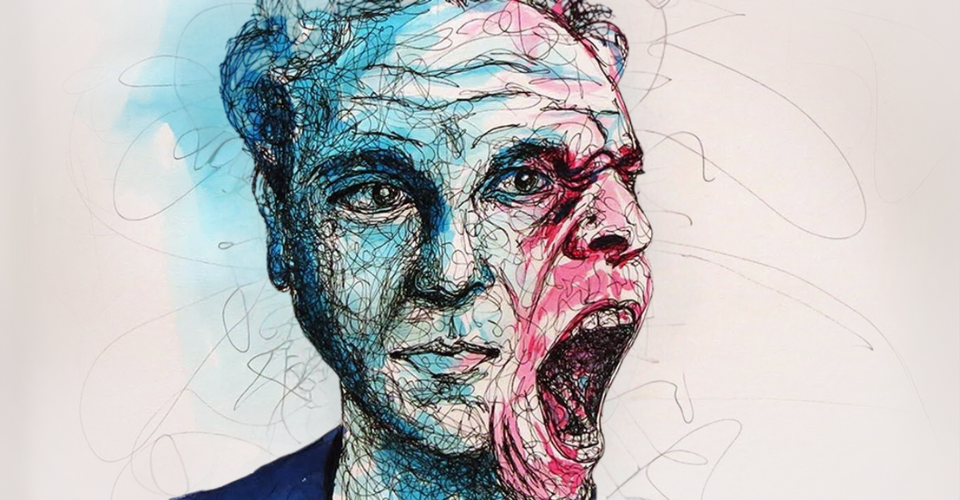Borderline personality traits in young people such as adolescents and young adults are connected to different brain connectivity patterns according to a pioneering research that has been published in Biological Psychiatry. Specifically, the study cites certain brain regions related to emotion regulation and executive function being key forecasters of borderline personality traits that reveal neurodevelopmental origins of BPD (borderline personality disorder).
Understanding Borderline Personality Disorder
Borderline personality disorder is a life-threatening psychiatric condition characterized by extreme mood swings, unstable relationships, impulsivity and an increased risk of suicide. Although most diagnoses occur during adulthood, the symptoms often start at adolescence. Previous studies have mainly focused on adults who had small sample sizes leading to contradictory findings. The present study aims at addressing this gap by using extensive datasets to examine the developmental neurobiology of borderline personality traits among younger populations.
Research Methodology
The authors harnessed data from two comprehensive public datasets including; Human Connectome Project Development (HCP-D) dataset, and Human Connectome Project Young Adult (HCP-YA) dataset. While HCP-YA dataset involved 870 young adults’ data, HCP-D dataset covered 610 teenagers’ data. Participants were subjected into resting-state fMRI scans for recording natural brain activities.
They employed multivariate linear ridge regression method for machine learning so as to predict borderline personality traits based on brain’s connection patterns between various regions. They used derivatives from NEO-FFI (NEO Five-Factor Inventory), which is a highly recognized instrument for evaluating different personalities after its validation in prior research.
Key Findings
In conclusion, particular patterns of brain connectivity strongly corresponded with borderline personality traits as demonstrated by this study. This was especially true when it came down to predictive models for these traits in young people where interconnectivity within specific functional networks implicated in emotions regulation and executive functions acted as reliable predictors. The best performance was shown by ventral attention network, which is involved in emotional response and regulation.
Among the young adults, the predicted borderline personality disorder scores were significantly related to those observed, as indicated by a correlation coefficient of 0.14. Noticed was the fact that these two predictive areas are located within ventral attention and frontoparietal networks while these brain regions are vital for managing emotions and higher-order cognitive functioning.
On the other hand, in adolescents’ dataset, this model also significantly predicts BPD traits with much improved correlation coefficient of 0.24. Therefore, similar aspects throughout developmental stages imply that there can be an early identification of neural basis for borderline personality traits.
Developmental Changes and Brain Connectivity
As it turns out, exactly those brain parts where connectivity showed most significant changes during adolescence happened to be the ones most precisely predicting borderline personality disorders traits. This concurrence highlights the role of brain development in explaining how these qualities arise from nowhere within individuals. It suggests that at adolescence changes in brain connectivity patterns may be crucial to borderline personality disorder traits formation.
Limitations and Future Directions
There are some limitations associated with this research despite its promising outcomes; since only participants without BPD diagnosis were included but instead those with typical development features having BPD traits. Moreover, findings might have lacked specificity mainly because they relied on proxy measures instead of clinical assessments directly linked to BPD traits. These findings should therefore be validated through similar methodological approaches applied into clinical populations in future studies.
Conclusion
In summary, multivariate functional connectivity patterns can be used to predict hostel personality traits in young adults and adolescents with unknown data,” concluded the researchers. “The findings suggest that functional connections of regions whose development peaks majorly during youth are also associated with BPD which adds to the growing body of evidence demonstrating its neurodevelopmental basis. An important future direction for longitudinal studies would involve connecting individual’s developmental trajectories of functional connectivity to the onset of BPD. From a broader perspective regarding potential neurodevelopmental underpinnings of BPD, our current findings provide a fresh insight.”
The article titled Generalizable Links Between Borderline Personality Traits and Functional Connectivity was authored by Golia Shafiei, Arielle S. Keller, Maxwell Bertolero, Sheila Shanmugan, Dani S. Bassett, Andrew A. Chen, Sydney Covitz, Audrey Houghton, Audrey Luo, Kahini Mehta, Taylor Salo, Russell T. Shinohara, Damien Fair, Michael N. Hallquist and Theodore D. Satterthwaite.






Leave a Reply
You must be logged in to post a comment.